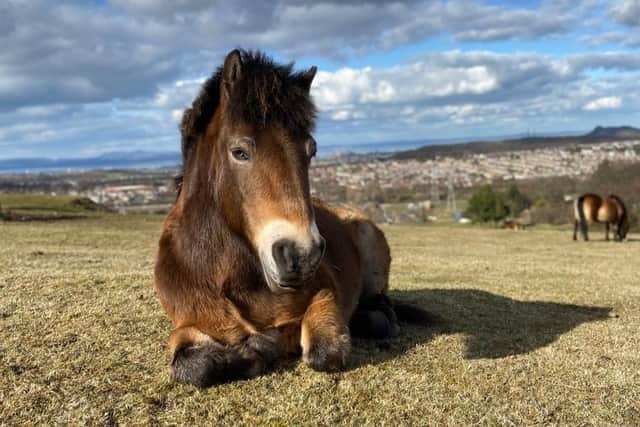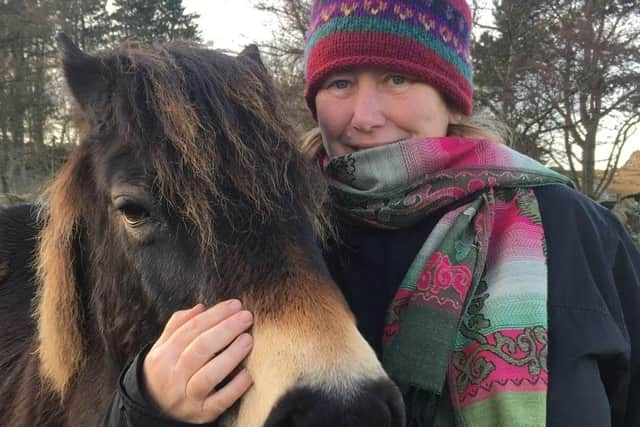Scottish experts join scientific team set up to save the UK's oldest pony breed
The distinctive Exmoor pony is thought to closely resemble the original wild ponies that colonised Britain and Europe many thousands of years ago, after the last ice age.
Today around 500 ponies still run free on the moors of their homeland in south-west England, while a further 3,500 live elsewhere in the UK and in several other countries.
Advertisement
Hide AdAdvertisement
Hide AdBut the breed had come perilously close to vanishing, with only 50 individuals remaining on Exmoor by the end of the Second World War.
Historically, the ponies were used by hill farmers to undertake all kinds of work, from being ridden for shepherding to being used in harness for ploughing and transporting people and supplies.
Nowadays they are popular as mounts for children but they have also found a new niche – as eco-friendly mowing machines for conservation grazing schemes.
They are still classed as endangered and efforts are ongoing to maximise their chances of survival into the future.


And although the breed is not Scottish, lots of the work has been taking place north of the border.
Members of the newly established Scientific Advisory Panel include Exmoor pony experts Professor Marcello Riggio, a microbiologist at the University of Glasgow; Deborah Davy, a postgraduate student at the University of Glasgow; her son Dr Philip Davy, a genetics scientist who studied at the universities of Aberdeen and St Andrews and now works at the University of Hawaii; ecologist and author Dr Sue Baker; and veterinary surgeon Gaye Sinclair, who also studied at the University of Glasgow.
Professor Riggio was instrumental in establishing the University of Glasgow’s own herd of Exmoor ponies in 2020, which are the focus of research into health, conservation and rewilding.
Meanwhile, Ms Davy has been breeding the ponies on the remote Scoraig peninsula, in the north-west of Scotland, since 1983.


Advertisement
Hide AdAdvertisement
Hide AdHer experiences prompted her to embark on a PhD project investigating the genetics of the Exmoor pony population and their environmental interactions.
The new advisory group has been set up by the Exmoor Pony Society, which was established in 1921 to safeguard the breed, and will lead on genetic research aimed at preserving the particular characteristics of the ponies and ensuring herds are as healthy and resilient as they can be.
“The Exmoor pony is one of the most iconic native breeds in the UK and much loved by the public here on Exmoor as well as around the world,” said Nigel Hill, chairman of Exmoor Pony Society.


“While the population of Exmoors in the stud book has grown since it was decimated in the Second World War, it’s still a priority breed, according to the Rare Breeds Survival Trust – which essentially means endangered.
“It is our role to safeguard the future of such a vulnerable breed at a time when there are growing risks from the effects of global warming on habitat, disease and social change.
“Our new Scientific Advisory Panel will ensure we are at the forefront of equine genetics, helping Exmoor Pony Society members, breeders, stakeholders and the public to understand initiatives that may impact upon and support Exmoor ponies.”
Comments
Want to join the conversation? Please or to comment on this article.
